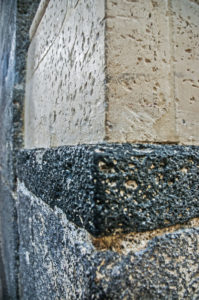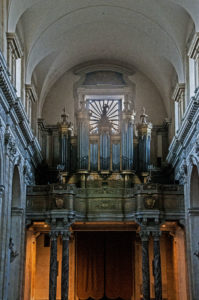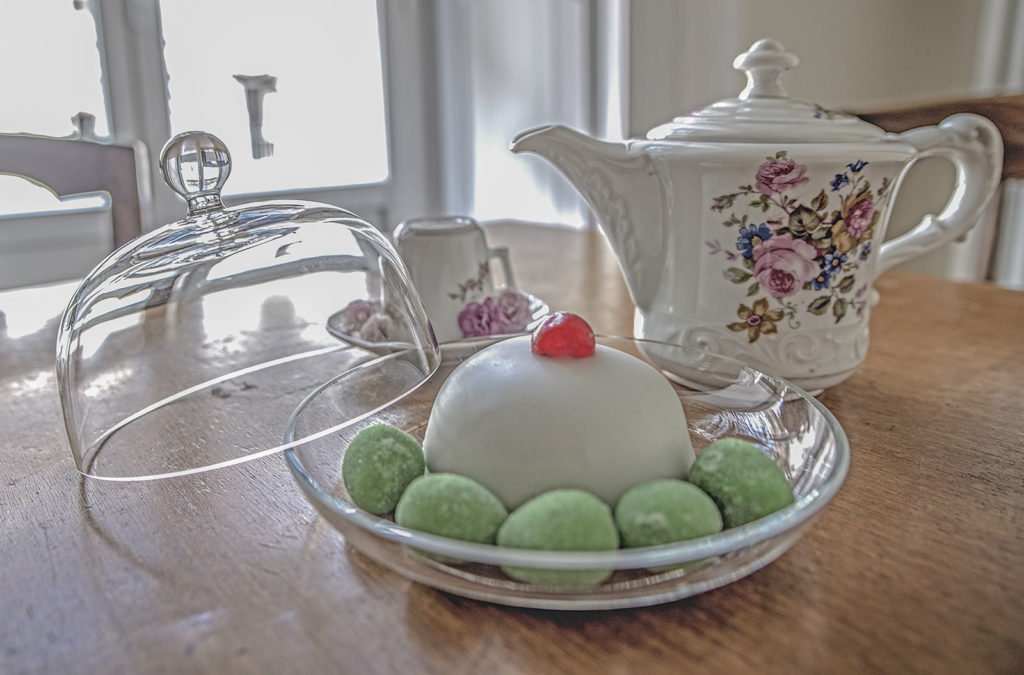 Of all the wonders of Piazza Duomo, the cathedral certainly does not go unnoticed.
Of all the wonders of Piazza Duomo, the cathedral certainly does not go unnoticed.
Thanks to a play on colour between the white limestone and grey lava stone, the façade figures prominently in the square.
The two colours alternate with one another to create a perfect harmony that adds liveliness to the façade.
The colours are not always the same; at different times of the day they shine differently depending on the light.
Look but don’t touch! How many times have you heard this said in museums or churches?
But if you could touch each material that made up the church you would notice how different they are; starting with the pillars that separate the central nave from the lateral naves, the former in lava stone and the latter in white limestone.
On a hot summer day, the outside walls will be much warmer than those inside, which will be undoubtedly cold.
 The church has an unbreakable bond with music.
The church has an unbreakable bond with music.
The cathedral of St. Agatha is not only home to a magnificent organ, now located above the entrance, but the tomb of the musician Vincenzo Bellini (1801-1835).
Though he died very young, he was recognised as one of the greatest composers of his time.
The artist’s tomb was created in 1876 by Giovanni Battista Tassara and is located next to one of the pillars of the right nave.
Bellini was initially buried in Paris at the Père Lachaise Cemetery.
During the feast dedicated to St. Agatha, the “Minne di Sant’Agata”, a dessert made in her honour, are another must.
The shape is unambiguously reminiscent of a woman’s breast, in memory of the terrible martyrdom suffered by the saint.
The dessert consists of a shortcrust pastry shell covered with white icing with a candied cherry on top; the filling is made with sweetened sheep’s milk ricotta, candied fruit and dark chocolate. Yum! Not to be missed if you happen to be in Catania during the feast. 